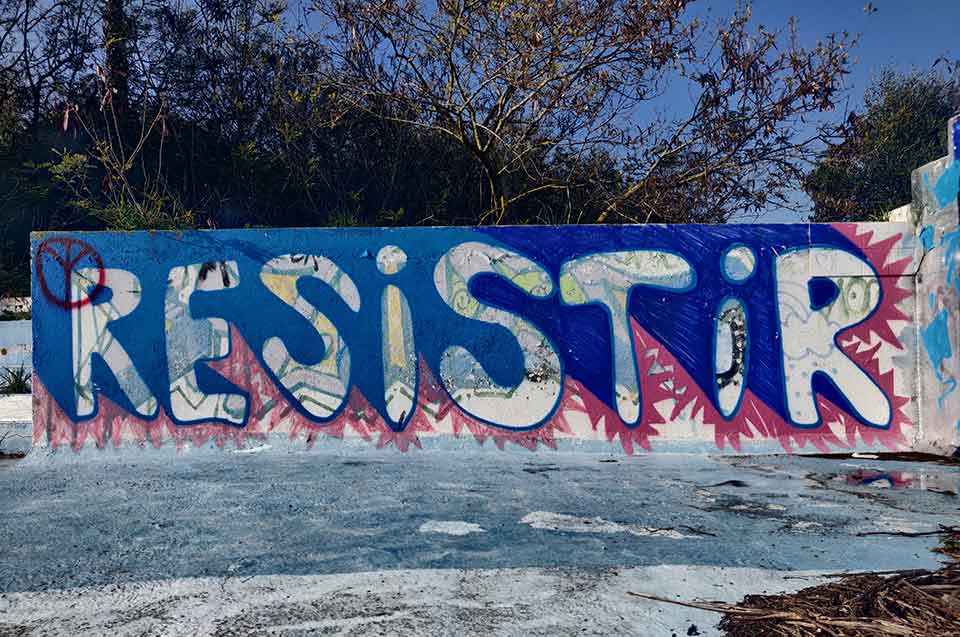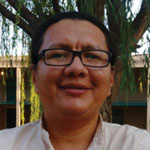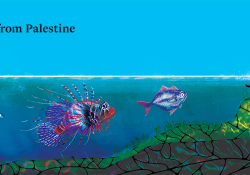300 Latin American Poets of Resistance: Two Anthologies, One Unique Work
 Since the Gutenberg revolution, the democratization of access to books has gradually widened the scope of representation in their pages. With that expansion, grassroots efforts have emphasized empowering those who champion human rights. Anthologies are collective works, culling the best literature, adding to the building blocks of knowledge. They empower readers to envision a new world, a better world. The work of Rocío Durán-Barba and other anthologist-activists represents the best of this tradition.
Since the Gutenberg revolution, the democratization of access to books has gradually widened the scope of representation in their pages. With that expansion, grassroots efforts have emphasized empowering those who champion human rights. Anthologies are collective works, culling the best literature, adding to the building blocks of knowledge. They empower readers to envision a new world, a better world. The work of Rocío Durán-Barba and other anthologist-activists represents the best of this tradition.
“Resistir (Resist) will not be my most original work, but it will be the most beautiful of my stories,” I wrote in the introduction to Resistir, antología de poesía latinoamericana 2020. Now, after the launch of the new anthology, Resistir 2022–2023, 150 escritores más, with 150 additional writers, I can affirm it: Resistir is the most beautiful of my stories!
This story, built within the framework of PEN International, involved PEN France, PEN Suisse Romand, and eighteen Latin American PEN centers: Argentina, Bolivia, Colombia, Chile, Ecuador, Guatemala, Honduras, Mexico, Nicaragua, Paraguay, Puerto Rico, Venezuela, Uruguay, Cuban Writers in Exile, Guadalajara, Chiapas, Quechua, and San Miguel de Allende.
Resistir was born with the dream of creating a space destined to manifest the expression of Latin America’s spirit, a dream to disseminate the region’s contemporary literary creations in France and Europe, a dream to build a bridge of communication and collaboration between the above-named PEN centers.
Sharing similar roots and a common past, the desire was to draw closer to one another, guided by the historical motto “Resist!”, which is interwoven in the soul of Latin American culture.
Presented within PEN France, this project was perceived as overly ambitious, impossible to carry out. In Latin America, however, it was greeted with euphoria and ultimately success, perhaps because of its coherence: directed to a set of Spanish-speaking countries that—thanks to a common linguistic heritage—are able to communicate. Sharing similar roots and a common past, the desire was to draw closer to one another, guided by the historical motto “Resist!”, which is interwoven in the soul of Latin American culture. An ancestral and contemporary motto, echoing distant and near, on earth and in the spiritual realm. The anthology also augured something else: without having planned it, it became a call to overcome the global pandemic, a period of unprecedented crisis.
The 2020 Resistir anthology (with 150 writers, including fifteen from PEN France), presented through twenty-two videoconferences (2020–2021), sparked a wave of enthusiasm around Latin American cultural and historical unity and convergence. It was the sharing of poetry without borders. The rediscovery of our common universe. The reweaving of links to the same past. Bringing together writers of all nationalities . . .
A film, intended to encapsulate the memory of the unforgettable moments and especially the important messages left during the videoconferences, was essential. The premiere of this film—held at the University of Westminster in London (April 2022)—resulted in the release of the trilingual Voices of the Film Resist in Spanish, French, English, a book that contains the interventions collected in the film weaving a journey through twelve Latin American countries, their poetry, their life, local characteristics, music . . .
The 2023 Resistir anthology, which includes thirteen writers from PEN Suisse Romand, is an extension of the first anthology. It was planned not only to extend its echo but to include new voices—notably, those in Quechua and from Chiapas, who reinforce by their presence the voice of ancestral Latin American cultures. It was launched at the end of 2022 in a digital version and is being printed for release in Paris in June 2023.
These two anthologies, now made up of three hundred writers, are a unique work. One voice. A sonorous voice. Impassioned. With a transcendent-moving accent. A voice turned sometimes toward the future, often toward the past, in order to question the myths, the truths and lies, the tragedies, the bloody pages of history.
Paris
Translation from the French
Editorial note: The three books are available in digital versions at www.rocioduranbarba.com, along with the film, which is available by request, free of charge, for groups of more than ten persons.

Peasant Women Collecting Peat
by Missael Duarte Somoza
translated by Daniel Simon
In quietude the bird measures
the immensity of the day
The bodies of bent-backed women
merge with the peat
or from the peat it seems
their bodies are formed
In earthy plenitude
these two shadows of time
collect the ancestral humus of existence
Resist
by Ernesto Díaz Rodríguez
translated by Daniel Simon
Resistance is the forge that makes a man stronger.
Source of the diamond, link without a chain
that germinates in the furrow which nurtures the good wheat
in the end, it bears sweet springtime fruits
in the echo of a dawn that opens eyelids to the sky.
Resistance is the voice that carries on the wind
if mist enshrouds the dusk, if dreams are fettered.
Resistance is the protest against absurd norms,
it is the winged pendulum that never rests.
If at night the stars get stuck while walking,
if the sea is sad, the waves near death,
the flowers wilted and the garden decaying,
resistance is the chant that makes us invincible.
I Sing in the Apocalypse
by Lidia Corcione Crescini
translated by Daniel Simon
The earth and my spirit
listen to the song
of the ripe fruit.
Its voice mitigates
the thirst
of past memories.
Ambition and power
have dispossessed the ancestors
of their garments.
Nude
they wander
in a bath
of blood.
Sitting on Ice
by Samuel González-Seijas
translated by Daniel Simon
I climb the wall because I no longer see the city.
Stones, dark battlements, large gates sprout through the valley.
Like us, each one in his cell, mouths full of lumps,
sitting on ice, staring into space.
Translations from the Spanish
Editorial note: From Resistir: Antología de Poesía Latinoamericana 2020, a co-edition by Allpamanda (editions of the Rocío Durán-Barba Cultural Foundation) and Écrits des Forges. Published by arrangement with the editors.
 Missael Duarte Somoza (b. 1977, Nicaragua) received an MFA from the University of Texas, El Paso (2016). He is the editor of the journal Literatura Mexicana Contemporánea at UTEP.
Missael Duarte Somoza (b. 1977, Nicaragua) received an MFA from the University of Texas, El Paso (2016). He is the editor of the journal Literatura Mexicana Contemporánea at UTEP.
 Ernesto Díaz Rodríguez (b. 1939, Cuba) was a political prisoner for more than twenty-two years. He is an honorary member of the PEN Clubs of France and the United States.
Ernesto Díaz Rodríguez (b. 1939, Cuba) was a political prisoner for more than twenty-two years. He is an honorary member of the PEN Clubs of France and the United States.
 Lidia Corcione Crescini (b. 1957) is a Colombian lawyer, teacher, journalist, and cultural organizer. Her books include Vuelo de jazmines; Polen de luna; Memoria de mis manos; Todo lo divino, lo humano, lo pagano; and Catalino en el país de los sordos.
Lidia Corcione Crescini (b. 1957) is a Colombian lawyer, teacher, journalist, and cultural organizer. Her books include Vuelo de jazmines; Polen de luna; Memoria de mis manos; Todo lo divino, lo humano, lo pagano; and Catalino en el país de los sordos.
 Samuel González-Seijas (b. 1971, Caracas) is a Venezuelan publisher and poet. His books include Espesa marea (2015) and Salmos de la penuria (2018).
Samuel González-Seijas (b. 1971, Caracas) is a Venezuelan publisher and poet. His books include Espesa marea (2015) and Salmos de la penuria (2018).










